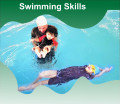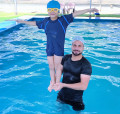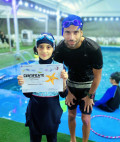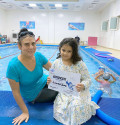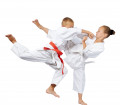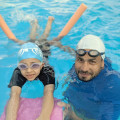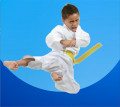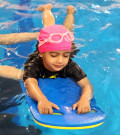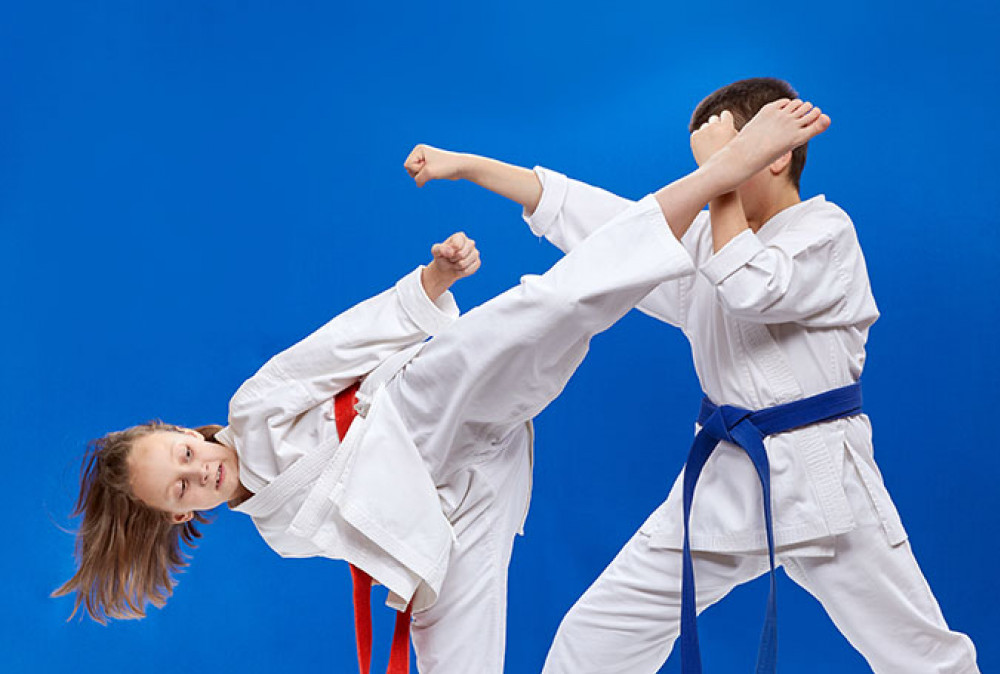
Karate for Let's Learn Smell My Fanny
2023-12-23 - karateKarate, the ancient martial art originating from Okinawa,
Japan, has transcended its traditional roots to become a global phenomenon. In
this comprehensive guide, we will explore the fundamentals of Karate, its
unconventional aspects, and the intriguing connection between Karate and the
sense of smell.
I. Introduction
A. Definition of Karate
Karate is not merely a physical activity; it is an art form
that combines discipline, self-control, and rigorous physical training.
Understanding the essence of Karate is crucial for anyone looking to delve into
its world.
B. Importance of Learning Karate
Beyond the obvious self-defense aspect, Karate instills
mental discipline, physical fitness, and a sense of personal growth. It's a
journey that goes beyond the kicks and punches, touching the core of one's
character.
C. Relevance of the Topic
"Why focus on smell in Karate?" you may wonder.
The sense of smell is an underrated yet critical aspect of martial arts
training. We'll unravel the mysteries behind this unconventional approach.
II. The Basics of Karate
A. Origins and History
Tracing its roots to Okinawa, Karate has a rich history of
development. From its humble beginnings to its evolution into a global
practice, understanding its history sets the stage for a profound exploration.
B. Fundamental Techniques
Karate basics involve more than just kicks and punches.
We'll delve into the fundamental techniques that form the building blocks of
this martial art, emphasizing precision and control.
C. Belt System in Karate
The symbolic belt system in Karate signifies a
practitioner's progress and proficiency. We'll demystify the colors and levels,
guiding readers on what each belt represents.
III. Let's Dive Into Karate
A. The Importance of Smell in Karate
In a twist that sets this guide apart, we'll explore the
unconventional aspect of incorporating smell into Karate training.
Understanding how the olfactory senses contribute to heightened awareness is
key.
B. Unusual Training Methods
Karate isn't just about physical prowess; it involves unique
and sometimes unconventional training methods. We'll uncover some of these
methods that engage both the body and the mind.
C. Developing Sensory Skills
Beyond the traditional physical drills, Karate cultivates
sensory skills. We'll discuss how practitioners can enhance their senses,
focusing on the often-overlooked sense of smell.
IV. Benefits of Learning Karate
A. Physical Fitness
Karate is a full-body workout that improves strength,
flexibility, and cardiovascular health. We'll break down how regular practice
contributes to overall physical well-being.
B. Mental Discipline
Discipline is at the heart of Karate. From cultivating a
focused mind to developing mental resilience, we'll explore how Karate nurtures
mental discipline.
C. Self-Defense Skills
While self-defense is a primary motivator for many, we'll
elaborate on the practical self-defense skills acquired through Karate training
and their real-world applicability.
V. Karate for All Ages
A. Kids and Karate
The benefits of introducing Karate to children extend beyond
physical activity. We'll discuss how Karate positively influences a child's
development, instilling values such as respect and perseverance.
B. Adults and Stress Relief
Karate isn't just for the young; adults find stress relief
and a renewed sense of focus through practice. We'll explore how Karate becomes
a therapeutic outlet for busy adults.
C. Seniors and Maintaining Agility
For seniors, Karate provides a means of staying active and
maintaining agility. We'll highlight the gentle adaptations in training that
cater to the needs of older practitioners.
VI. Karate Myths Busted
A. Dispelling Misconceptions
Karate has its fair share of myths. We'll debunk common
misconceptions and separate fact from fiction, ensuring readers have a clear
understanding of what Karate entails.
B. Debunking Stereotypes
Stereotypes often cloud perceptions of martial arts. We'll
address and dispel these stereotypes, presenting Karate in its true light.
C. The Realities of Karate Training
Training in Karate is not always glamorous. We'll discuss
the challenges and realities faced by practitioners, fostering a realistic
expectation for those considering the art.
VII. Tips for Choosing a Karate School
A. Accreditation and Certification
Choosing the right Karate school involves evaluating its
credentials. We'll guide readers on what to look for in terms of accreditation
and instructor certifications.
B. Instructor Experience
An experienced instructor can make all the difference. We'll
provide tips on assessing an instructor's.







.jpg)




































































